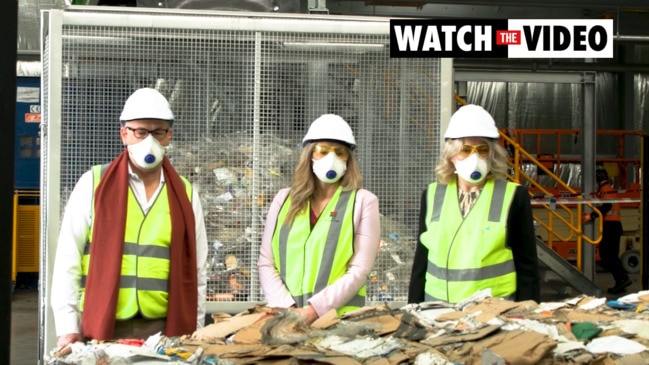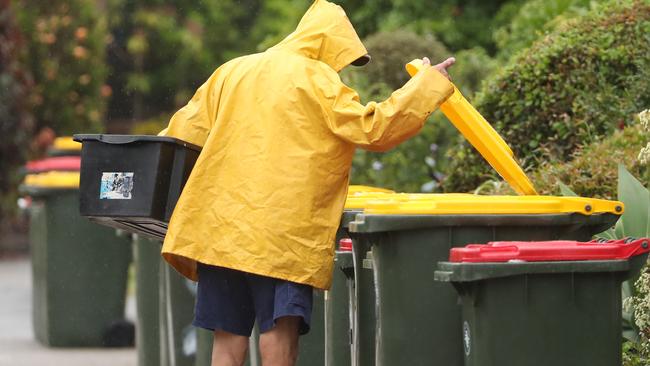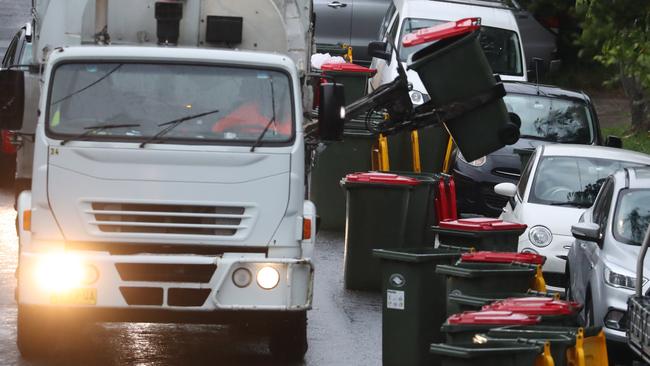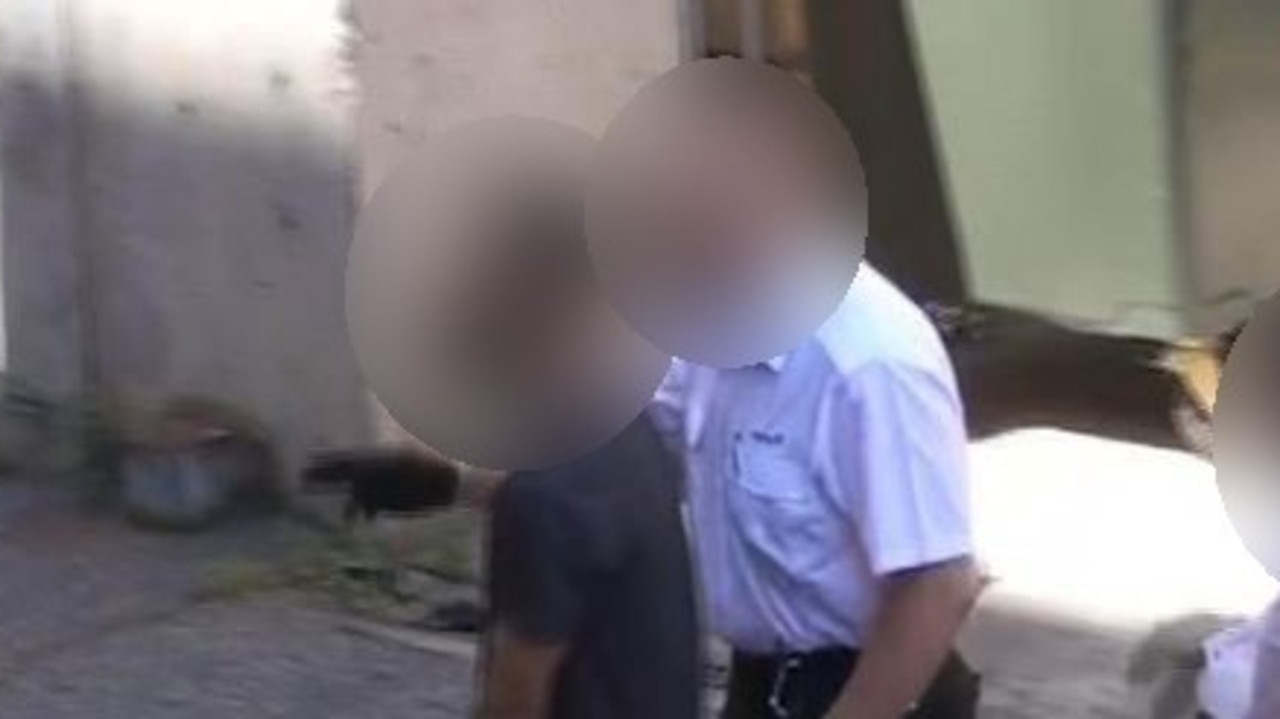Green Industries SA says weekly general waste collection is not essential
Experts say we probably don’t need a weekly rubbish service – but what about those nappies?

SA News
Don't miss out on the headlines from SA News. Followed categories will be added to My News.
Fears over stinky nappies and disposal of incontinence pads are the sticking points in the push to switch to fortnightly general waste collection – but experts say the problem is overblown and easily resolved.
Last week’s Sunday Mail report on potential changes to rubbish collection across Adelaide created a storm of controversy.
Some councils, backed by state government grants, are successfully trialling weekly green bin collection and say if that proves successful, it could lead to legislative change allowing fortnightly pick-up of general waste bins in metropolitan as well as country areas.
Holdfast Bay has already run a large trial combining both changes, believed to be the best way to break old habits and divert more food and garden waste from landfill. Bin audits found the amount of food in green bins more than doubled, instead of being wrongly placed in general waste bins.
But many of the more than 1000 readers who commented found it hard to comprehend how they could cope with fortnightly general waste collection.

The state government’s Green Industries SA said concerns over things like nappies were common, but that hadn’t stopped local authorities all over the world, including the UK, the US and Europe, from introducing fortnightly general waste pick-up.
A Green Industries spokesman said families using nappies were usually offered a larger bin and advised to ensure nappies were wrapped tightly and bagged before going in the bin.
“If people are recycling everything possible through their yellow bin fortnightly, and all their food and garden waste weekly, then there’s not often a lot left that is actually in that (general) waste bin,” the spokesman said.
“If all your glass, paper, cardboard and hard plastic and packaging is going in the yellow bin, and all your food and garden waste is going in the green bin, your batteries are going back to store, and your soft plastic is going back to a store, and you’re taking your unwanted household chemicals back to a hazardous waste depot, what’s left in your average waste bin?”

East Waste general manager Rob Gregory said he was a fan of the Holdfast Bay trial but it was “not necessarily the right answer for every community”.
He was keen to “provide more service choice and flexibility to residents on kerbside services to support them to increase their recycling levels”.
Environment Minister David Speirs said as much as 40 per cent of material in general waste bins sent to landfill was food and organics ‘which could be diverted through the green bin”.





